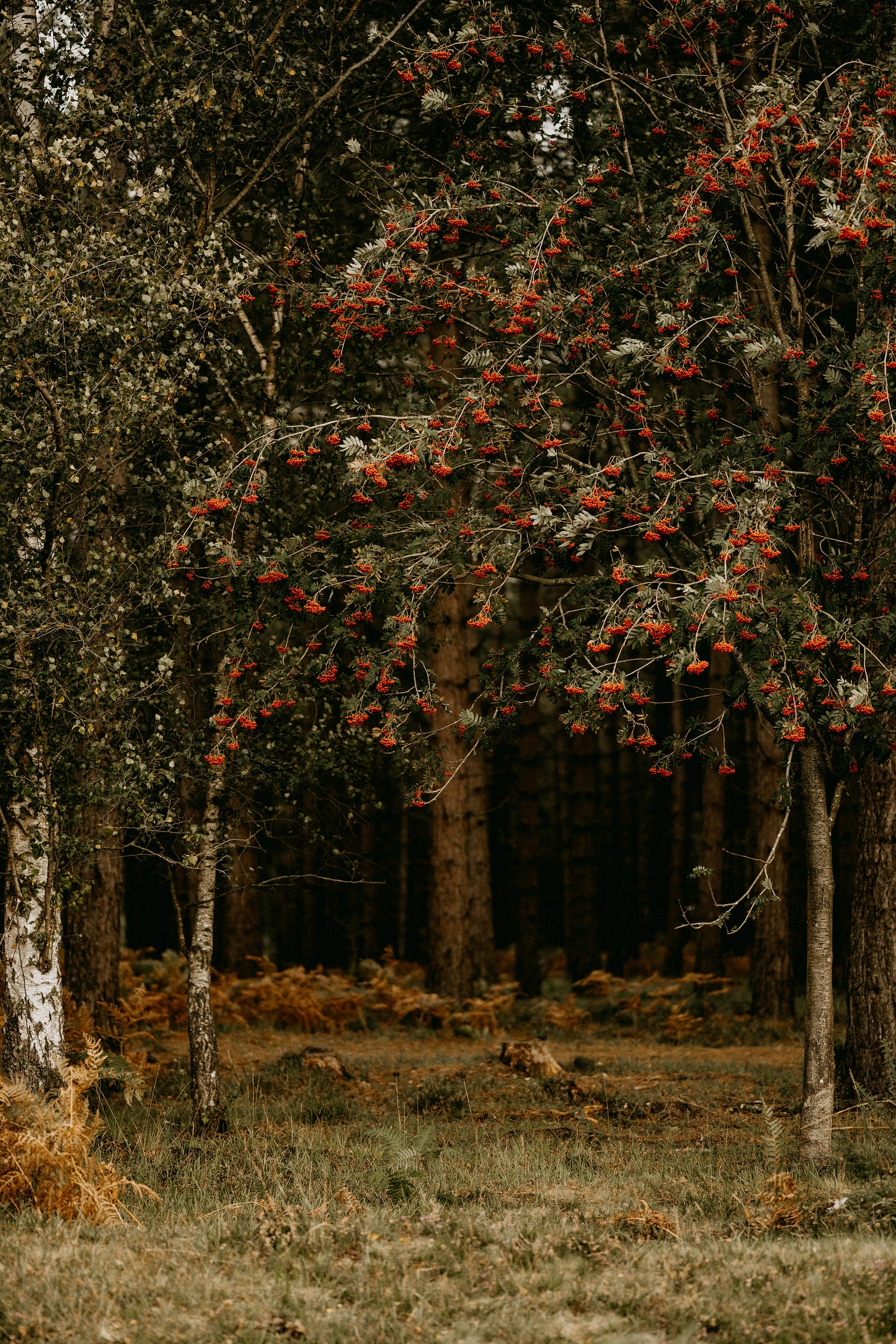Healing ourselves into here: a manifesto for The Green Chapel
Where does our ache for belonging really come from?
... And we pray, not for new earth or heaven, but to be quiet in heart, and in eye, clear. What we need is here. —Wendell Berry, The Wild Geese
September morning, leaf-quiet; scents of autumn-blue, head-fog lifting, song-thrushes picking berries from the rowan.
Wake up, comes the call. Wake up.
This refrain, so familiar in my life, has nothing to do with sleep. Not sleep as we understand it. It is the background hum; the invocation vibrating in my capillaries when I look out of the window at so many different kinds of green.
It is beauty beckoning me back into the world. Beckoning us.
Wake up, comes the call, for all this gorgeous isn’t for nothing. Beneath the ground of our existing, the root-tendrils of our souls reach out, thirsty to be kindred. Yet we have forgotten it, moving through the world as though we were separate from it.
Wake up.
God-glimmers
How can we not know that, already, we live in paradise?
—Mary Oliver, Long Life: Essays and Other Writings
God does not sing to us from the distance of what we once thought of as heaven, pearly and other, but out of the soil, the grass, the trees, the throat of the fox and robin, the hint of gold entering the early autumn canopy. It is our neighbours, in other words, human and more-than-human, where our hearts find harmony. It is the living world, the living world in which we first opened our eyes but have since seemingly closed them, that is redolent with God-glimmers.
Wake up.

We are desperate for belonging, but not because our place is in some far-off spiritual realm, but because our place is here, and we have been severed from it. We are surrounded by the Here that we belong to, and our souls are begging us to pay attention to it, yet we keep looking—or are forced to look—elsewhere.
It is not the beyond for which we ache, but for here: the home from which we are estranged.
And thus we are unsure of ourselves in a way that no other creature is; and thus our salvation lies not in decamping to some golden city that God has waiting for us, but in repairing our connection with this home—our only home. This is the new heaven and the new earth: the one we make by healing our relationship with the one we have.
Wake up.
The flesh of the world
So will I build my altar in the fields, And the blue sky my fretted dome shall be. —Samuel Taylor Coleridge, To Nature
How has Christianity missed this? The incarnation—the spirit of reality growing in a womb, pushed out of a birth canal, living and breathing and sweating and dreaming and desiring and dying—is a clear a sign as we could hope for. ‘I will be a body,’ sayeth the Lord. ‘For I am the flesh of the world; I will remind them that flesh is holy and good: from tree bark to gut bacteria to the breath of stars.’
There is an inherent goodness and worth to this world. There is a miracle in simply being here. In being alive amongst all this life.
Too much theology declares the opposite. The message that too many Christians inherit is that this world is broken, fallen; that we are broken, fallen; and that our true home lies elsewhere. Hence why Christianity (generally speaking, there are exceptions) has failed to be at the forefront of any environmental movement. If you don’t believe this is your home, why would you want to preserve, protect and enable it to flourish?
The task
That isn’t to say that there isn’t an ‘elsewhere’, or an ‘after’. There is a beautiful maybe to those ideas, but they should never come at the expense of loving where and who we are. As Wendell Berry put it in his poem Canticle, ‘If life can't justify and explain itself, death can't justify and explain it.’
This is not a broken world; it is our relationship to it that is broken. We are not broken people; it is our relationships—to ourselves, to each other, to the living world—that are broken. Our wound is not some innate wrongness, but a grief that stems from these severances.
Our task, therefore, is to heal ourselves into here. And this is my hope for the words I’ll be writing on the walls of The Green Chapel.
Wake up.
GH
Poem: Re-incarnation
Start here. You don’t need to come back as anything else. Come back now, instead, as a creature more deeply yourself. Embody your life; be grounded in the matter of your days. The incarnation didn’t happen only for you to do the opposite. If you want to be spiritual, find the earth; if you want to know God, press the lips of your soul against the bright thud of the real. You can think about the afterlife once you’ve exhausted what comes before it. Gideon Heugh
A little note to say…
I won’t be putting The Green Chapel behind a paywall. I believe that poetry and ideas about God and other beautiful things should be as accessible to as many people as possible. Having said that, I am an independent artist, so I need all the support I can get! If you’re able to make a small contribution to my work, I’d be incredibly grateful. It will help me to keep doing what I’m doing, and keep it free. Just click the button below. Thank you, GH.





Gideon, this is stunningly beautiful. You have put into beautiful words what I’ve felt for so long. Thank you for sharing your words with us, and thank you for starting this beautiful Substack.
Thank you: this stirred my longing, and my refusal to settle for cheap imitations.